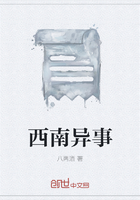"Transferred his attentions.Fancy!"
"Who to?"
"To Josephine and mamma.But such are the military.He only wanted to get rid of you: this done (through your want of spirit), he scorns the rich prize; so now I scorn HIM.Will you come for a walk?""Oh, yes!"
"We will go and look for my deserter.I say, tell me now; cannot Iwrite to the commander-in-chief about this? a soldier has no right to be a deserter, has he? tell me, you are a public man, and know everything except my heart.""Is it not too bad to tease me to-day?"
"Yes! but please! I have had few amusements of late.I find it so dull without you to tease."Formal permission to tease being conceded, she went that instant on the opposite tack, and began to tell him how she had missed him, and how sorry she had been anything should have occurred to vex their kind good friend.In short, Edouard spent a delightful day, for Rose took him one way to meet Josephine, who, she knew, was coming another.At night the last embers of jealousy got quenched, for Josephine was a wife now, and had already begun to tell Camille all her little innocent secrets; and she told him all about Edouard and Rose, and gave him his orders; so he treated Rose with great respect before Edouard; but paid her no marked attention; also he was affable to Riviere, who, having ceased to suspect, began to like him.
In the course of the evening, the colonel also informed the baroness that he expected every day an order to join the army of the Rhine.
Edouard pricked his ears.
The baroness said no more than politeness dictated.She did not press him to stay, but treated his departure as a matter of course.
Riviere rode home late in the evening in high spirits.
The next day Rose varied her late deportment; she sang snatches of melody, going about the house; it was for all the world like a bird chirping.In the middle of one chirp Jacintha interfered."Hush, mademoiselle, your mamma! she is at the bottom of the corridor.""What was I thinking of?" said Rose.
"Oh! I dare say you know, mademoiselle," replied the privileged domestic.
A letter of good news came from Aubertin.That summons to his nephew's funeral was an era in his harmless life.
The said nephew was a rich man and an oddity; one of those who love to surprise folk.Moreover, he had no children, and detected his nephews and nieces being unnaturally civil to him."Waiting to cut me up," was his generous reading of them.So with this he made a will, and there defied, as far as in him lay, the laws of nature;for he set his wealth a-flowing backwards instead of forwards; he handed his property up to an ancestor, instead of down to posterity.
All this the doctor's pen set down with some humor, and in the calm spirit with which a genuine philosopher receives prosperity as well as adversity.Yet one natural regret escaped him; that all this wealth, since it was to come, had not come a year or two sooner.
All at Beaurepaire knew what their dear old friend meant.
His other news to them was that they might expect him any moment.
So here was another cause of rejoicing.
"I am so glad," said Josephine."Now, perhaps, he will be able to publish his poor dear entomology, that the booksellers were all so unkind, so unfeeling about."I linger on the brink of painful scenes to observe that a sweet and loving friendship, such as this was between the good doctor and three persons of another ***, is one of the best treasures of the human heart.Poverty had strengthened it; yet now wealth could not weaken it.With no tie of blood it yet was filial, sisterly, brotherly, national, chivalrous; happy, unalloyed sentiment, free from ups and downs, from heats and chills, from rivalry, from caprice; and, indeed, from all mortal accidents but one--and why say one? methinks death itself does but suspend these gentle, rare, unselfish amities a moment, then waft them upward to their abiding home.















